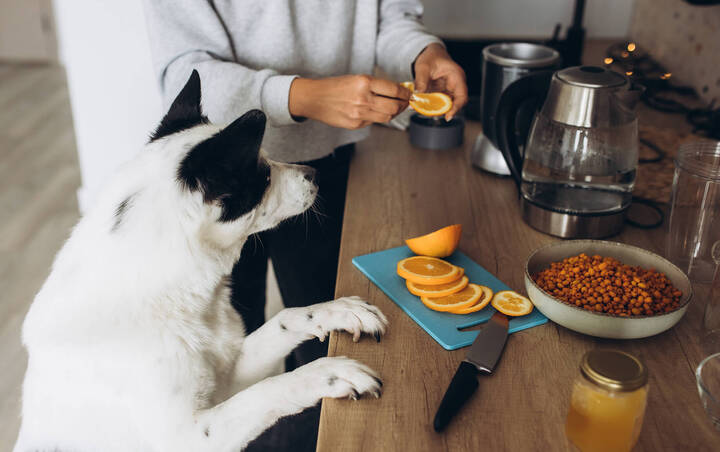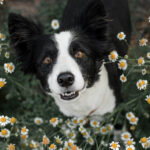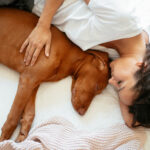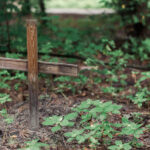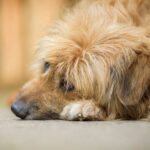Kennel cough, also known as canine infectious tracheobronchitis, is a highly contagious respiratory infection in dogs. It is characterized by inflammation of the upper airways, including the trachea and bronchi, leading to a persistent cough.
If you are a pup parent, it is likely that you have heard of the Bordetta vaccine. This vaccine is required when boarding dogs but does not protect entirely against all strains of kennel cough.
Watching your furry friend suffer with anything is hard; kennel cough is no exception. The good news is that several home remedies can help ease symptoms, make your pet more comfortable, and speed up healing.
What causes kennel cough?
Kennel cough is typically caused by a combination of viruses and bacteria, including the bacterium Bordetella bronchiseptica, canine parainfluenza virus, and canine adenovirus. These pathogens are easily transmitted between dogs, especially in environments where they are in close proximity, such as kennels, shelters, dog parks, and boarding facilities, hence the name “kennel cough.”
What are the symptoms of kennel cough?
Symptoms of kennel cough include a dry, hacking cough, retching, gagging, nasal discharge, fever, lethargy, and loss of appetite. While kennel cough is usually mild, it can sometimes progress to more severe respiratory infections, particularly in young puppies, elderly dogs, or those with weakened immune systems.
How long does kennel cough last?
Depending on the severity, kennel cough can last a few days to a few weeks. Older dogs or pups with compromised immune systems need longer for recovery.
Home remedies for kennel cough
Keeping your furry friend quiet and relaxed is essential for healing. Here are five home remedies that will help your pup feel better fast.
Manuka honey. Honey contains powerful antimicrobial properties and is also known as a cough suppressant. Mix a teaspoon in your dog’s food, dilute it in warm water, and administer it orally with a syringe every four hours. Caution: Do not feed honey to dogs under one year old.
Organic chicken broth. Hydration is vital for dogs with kennel cough. Organic chicken broth is a tasty and nutritious way to encourage your pup to drink fluids and boost his immune system. Offer up to five cups of broth daily.
Steam therapy. Steam is an excellent remedy for congestion and coughing. Sit with your pup in a steamy environment, like a bathroom, for about 15 minutes and run a hot shower. As the room fills with steam, it will help loosen mucous and ease coughing. Add a few drops of eucalyptus essential oil to the shower for an enhanced effect. Note: Don’t expose your furry friend to direct steam.
Humidifier. Excessively dry air can aggravate kennel cough symptoms. To moisten the air, run a humidifier in your home or the room where your pup spends most of his time. Note: Clean your humidifier regularly to prevent the spread of bacteria.
Vitamin C. Dogs naturally produce vitamin C, but even if they come down with kennel cough, a little supplementation can help boost their immune system. Supplement 18mg per pound of body weight and divide it throughout the day in food.
Probiotics. Probiotics boost immune system function and support gut health, so your furry friend will greatly benefit from them. Numerous types of dog treats contain probiotics. Follow the administration directions for the most benefit.
A cozy bed to rest. We all like a nice cozy bed when we don’t feel well, your pup is no different. Create a nice, quiet space for your furry friend to rest with cozy blankets and a soft bed. Rest is critical for recovery.
Things not to do when your pup has kennel cough
- Encourage exercise. Do not encourage your pup to play, go on a walk, or be rambunctious. Activity will irritate the respiratory tract and exacerbate symptoms. It is best to keep your furry friend calm and resting until he feels better.
- Do not expose your dog to irritants or smoke. Avoid smoking around your dog or exposing your pup to other airborne irritants, such as harsh cleaning supplies. These will increase the burden on the respiratory tract.
- Allow your dogs to be around other dogs. Kennel cough is highly contagious, so it is essential not to expose a sick dog to other dogs in your home or public. Also, keep food and water bowls, toys, and bedding separate to prevent spread.
- Ignore worsening symptoms. If your pup appears to be getting worse, contact your veterinarian immediately.
Preventing kennel cough
Whether or not you vaccinate your dog t, here are a few things you can do to prevent kennel cough. If you plan to board your pup, provide your bedding, food, water bowls, and toys and ask that these things be kept separate from other dogs. Focus on building strong immunity by feeding a wholesome diet and supplementing with probiotics. Ensuring that your pup maintains a healthy weight, gets plenty of exercise, and lives in a stress-free environment is also helpful to overall well-being and immunity.
